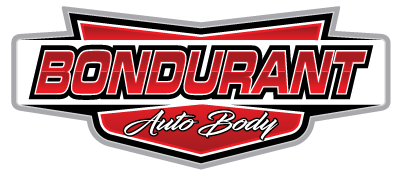Frequently Asked Questions
Do I Need More Than One Estimate?
There’s no law requiring you to get multiple estimates. Most insurance companies will accept a single, reputable body shop estimate. Choose a shop you trust, like Bondurant Auto Body, and let them handle the repair process with your insurance company.
What if I Already Have an Estimate from My Insurance Company?
If you already have an estimate from your insurer, simply provide us with a copy, and we can get started with your repair schedule.
Why Is Your Estimate Different from Others?
Variations in repair estimates are normal and can result from differences in repair approaches, missed items, or previously unseen issues. If you’re unsure why one estimate differs, ask us—we’ll walk you through each detail.
Can I Choose Where to Have My Car Repaired?
Yes, the choice is entirely yours. Although your insurer may suggest certain shops, anti-steering laws prevent them from requiring a specific shop. At Bondurant Auto Body, we offer a lifetime warranty on all workmanship.
How Long Will Repairs Take?
Repair times vary by vehicle and damage extent. We aim to return your vehicle promptly while following manufacturer standards and completing all necessary repairs.
Do I Have to Take My Car Back to the Dealership for Repairs?
No. Independent body shops repair most collision-damaged vehicles, and laws prevent auto manufacturers from voiding warranties for non-dealership repairs. At Bondurant Auto Body, our full focus is on collision repair, ensuring quality service and results.
What Is a Supplement?
A supplement refers to additional repairs discovered beyond the original estimate. Some insurance companies may pay directly from our estimate, while others have appraisers to assess damages. If an insurance representative created an estimate, we need a copy to handle any supplemental charges.
Where Do Replacement Parts Come From?
Replacement parts are sourced from:
- OEM (Original Equipment Manufacturer): Direct from the vehicle manufacturer (e.g., Ford, GM, Toyota).
- LKQ (Used or Recycled): Salvaged parts from similar vehicles.
- Aftermarket or Reconditioned: Parts manufactured by third parties, commonly available for frequently replaced items like bumpers and headlights.
Where Will My Insurance Company Send the Check?
Sometimes, the insurance check is sent directly to you. Bring it, along with your deductible payment, when you pick up your vehicle. If you sign our Direct Pay form, the insurance company will send the check to us.
Can the Shop Cover My Deductible?
No. Covering deductibles constitutes insurance fraud for both the shop and the customer, with serious legal penalties. Shops offering to cover deductibles may cut corners, potentially compromising safety and quality.
What Are Betterment Charges?
Betterment charges apply to parts that wear over time (like tires or batteries). These charges, determined by your insurer, are prorated based on your vehicle’s mileage.
